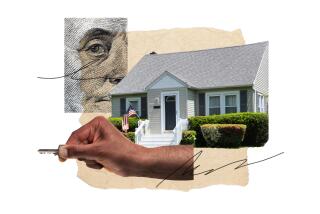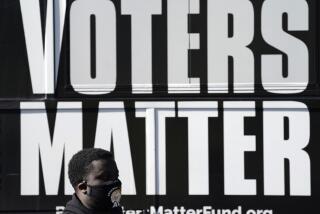Social Security Is Essential for Blacks
When Willard Witherspoon Jr., now a respected actuary, was an undergraduate at Harvard, his father became seriously ill and no longer could work. Even though the senior Witherspoon had been a good earner all his life as a construction worker, he had no private disability pension. His son thought he would have to quit school to help support his mother and younger siblings.
Luckily, a classmate in whom he confided his plight suggested that the family seek help from Social Security. They did, and found that Witherspoon’s father qualified for Social Security disability benefits. Additionally, his mother and siblings were also entitled to dependent benefits, up to the family maximum benefit (roughly half the father’s benefit). For the next few years, Social Security provided an income to Witherspoon’s family, which might otherwise have been destitute, and saved Witherspoon’s college career.
Some years later Witherspoon’s father died, entitling his still-dependent family members to Social Security survivor benefits. Benefits were paid to the widow and children still in school until the youngest of them, Gary, now an editor at Newsday, finished high school. Their mother will be supported by Social Security’s widows’ benefits for the rest of her life.
The Witherspoons, an African American family, could not have lived decently and educated their children without the help of Social Security.
Some, like the Heritage Foundation, who oppose keeping Social Security a defined plan that pays specific benefits to retirees, the disabled, their dependents and survivors, have been trying to peel off African American support by arguing that Social Security is not a good deal for them. These opponents say blacks have shorter life expectancies in which to collect retirement benefits. This argument overlooks the critical importance of Social Security to black families like the Witherspoons who need it before retirement age precisely because blacks do not live as long.
African Americans are 12% to 13% of the American population. While it is true that in 1995 only about 8% of those receiving retirement benefits were African American, many more collected pre-retirement benefit. Black children were nearly a quarter of the Social Security survivor beneficiaries paid because a parent was dead. One in five widows or widowers who received benefits while caring for a child was African American. Among disabled beneficiaries, nearly 20% were black.
Willard Witherspoon reports that retirees in his family--his grandparents, uncles and aunts--found Social Security life-saving. This is not surprising. Seventy-eight percent of African Americans over 70 have virtually no income from other sources. It is hoped that retired African Americans will have more assets in the future when today’s solid working class and expanding middle and professional classes reach retirement age. But for today’s retirees, Social Security is indispensable.
Further, most retired African Americans collect for many years. In 1992, black women who lived to normal retirement age, now 65, could expect to live an average of 17.4 years more compared to 19.3 years for white women. Similarly, black men who reached normal retirement age could expect to live on average 13.5 years more compared to 15.5 years for white men. (The discrepancy in life expectancy by race has been dropping over time and in all likelihood will continue to do so.)
Social Security’s progressive formula, which pays relatively more to those with low incomes than to those with high incomes, is another big plus for blacks, who on average have lower incomes than whites. Privatization of Social Security would change that to their disadvantage.
One proposal would cut benefits and squeeze low-income persons by increasing required worker contributions from their current level of 6.2% (plus contributions for Medicare) to 7.8% (plus contributions for Medicare). Benefits would be based in significant part on the returns from worker investments.
Since workers with lower earnings would contribute less, they would collect less. Further, their contributions to the Social Security fund would not produce as much income because the costs of making investments and obtaining investment advice are proportionately higher for small investors than for large. The result of all these factors is that lower-income workers get lower returns, both relatively and in absolute dollars. The effect on the families of those who become disabled or die early, before accumulating sufficient assets from investments, could be devastating to their retirement income.
Indeed, even in the unlikely event that the stock market had remained high forever and individual workers made no errors in choosing investments, it is doubtful whether most low-paid workers or their families would get returns comparable to benefits they receive under current law. Rather, privatization would reverse the progressive formula that is a longtime principle of Social Security. Clearly, African Americans have many reasons to oppose privatization.
More to Read
Inside the business of entertainment
The Wide Shot brings you news, analysis and insights on everything from streaming wars to production — and what it all means for the future.
You may occasionally receive promotional content from the Los Angeles Times.










